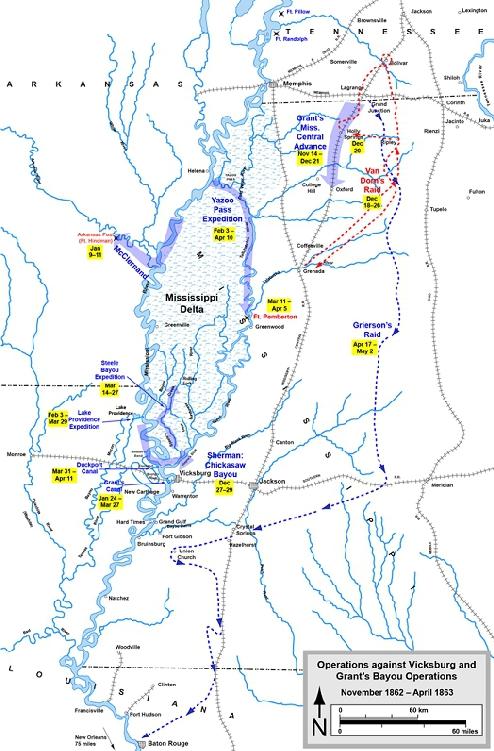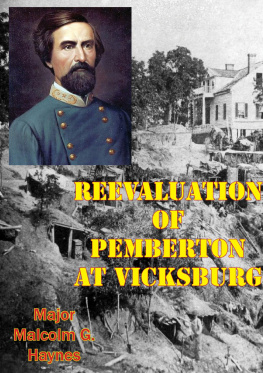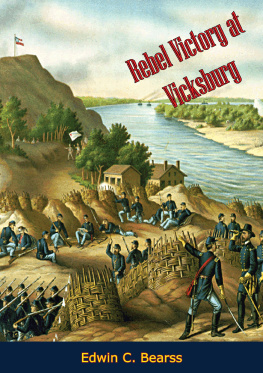This edition is published by PICKLE PARTNERS PUBLISHINGwww.picklepartnerspublishing.com
To join our mailing list for new titles or for issues with our books picklepublishing@gmail.com
Or on Facebook
Text originally published in 2012 under the same title.
Pickle Partners Publishing 2015, all rights reserved. No part of this publication may be reproduced, stored in a retrieval system or transmitted by any means, electrical, mechanical or otherwise without the written permission of the copyright holder.
Publishers Note
Although in most cases we have retained the Authors original spelling and grammar to authentically reproduce the work of the Author and the original intent of such material, some additional notes and clarifications have been added for the modern readers benefit.
We have also made every effort to include all maps and illustrations of the original edition the limitations of formatting do not allow of including larger maps, we will upload as many of these maps as possible.
A REEVALUATION OF PEMBERTON AT VICKSBURG
by
MAJ Malcolm G. Haynes
US Army
TABLE OF CONTENTS
Contents
ABSTRACT
Historians have largely agreed that Pemberton should shoulder the blame for the poor Confederate performance during the Vicksburg campaign. General consensus exists among American Civil War historians that Pemberton proved a confused, indecisive, and incompetent commander and his poor leadership led to the Confederate defeat. However, an examination of the Vicksburg campaign conducted at the operational level of war shows that throughout the campaign, Pemberton led a capable and competent defense not just of Vicksburg, but of the Mississippi Department he commanded. He relied on an operational approach that involved fighting from prepared defensive positions in favorable terrain deep in his own territory and anchored by natural obstacles. To attack such a position, Pemberton knew an opponent would need a large force operating over an extended line of communications (LOC). Pemberton intended to interdict his opponents LOC using a strong cavalry force, thus preventing the enemy from achieving the offensive momentum necessary to break through Vicksburgs defenses. This was a sound operational approach. However, it failed because of an ineffective Confederate command structure that, among other failures, denied Pemberton the resources, particularly adequate cavalry forces, required to implement his operational approach.
INTRODUCTION
On July 4, 1863, underneath an old oak tree, Confederate General John C. Pemberton surrendered Vicksburg to General Ulysses S. Grant. Believed by many to be an impregnable fortress, the Gibraltar of the Confederacy, once besieged, had fallen in a matter of weeks. The defeat at Vicksburg remains a watershed moment in American history, propelling Grant to national fame and signaling the death knell of the Confederacy. Many military historians view the Vicksburg campaign as one of the most important in all of history.
J.F.C. Fuller, writing in 1956 after two world wars and the Korean War, called the Vicksburg campaign one of the most important ever fought by American combat forces. Students at the School of Advanced Military Studies (SAMS), the U.S. Armys premier school for operational level planners, study Vicksburg in more detail than any other campaign because it provides students one of the first and best examples of operational art.
Operational art is the arrangement of tactical actions in time, space, and purpose to achieve strategic objectives. In securing Vicksburg, Grant achieved several important Union strategic objectives. He kept the mid-western states that depended on Mississippi River commerce loyal to the Union. At the same time, he split the Confederacy in half, isolating the western states from those to the east. Finally, because of its symbolic importance, the loss of Vicksburg dealt the Confederacy a devastating psychological blow. The manner in which Grant arranged his tactical engagements is just as impressive as the strategic outcomes.
Grant struggled for months to capture Vicksburg. His first attempt in November 1862, a two-pronged overland campaign, ended in failure. Throughout the winter of 1862, Grant tried a series of maneuvers to bypass Vicksburg or secure key terrain on one of Vicksburgs flanks. All these Bayou Expeditions failed. Finally, in April 1863, Grant launched a bold and risky plan. He maneuvered his forces to the south through eastern Louisiana, relying on a long and vulnerable line of communication (LOC). To divert Confederate attention and prevent them from attacking his vulnerable LOC, Grant launched a series of diversionary attacksthe most famous of which historians refer to as Griersons raid. Once Grant had maneuvered his forces south of Vicksburg, he crossed the Mississippi river at Bruinsburg and established a lodgment. In a break with standard practices, Grant then dispensed with a traditional LOC and foraged for sustenance as he outmaneuvered Confederate forces and cut Vicksburgs LOC at Jackson, Mississippi. He then defeated Confederate forces at the Battle of Champion Hill, causing a retreat into the Vicksburg garrison. Grant began siege operations, and after several weeks, realizing that relief was not coming, Pemberton surrendered.

Figure 1Overview of Vicksburg Campaign (Nov 1862-April 1863)
Figure 2Overview of Vicksburg Campaign (Apr-Jul 1863)
Shortly after the ink dried on the surrender parchment, people within the Confederacy began to wonder how Vicksburg could have fallen. Fingers soon pointed at one manJohn C. Pemberton. A northerner by birth, many southerners doubted Pembertons commitment to the Confederate cause and this made him an obvious scapegoat. Pembertons origins alone, however, cannot explain the conclusions of historians who, ever since the war, have largely agreed that Pemberton should shoulder the blame for the poor Confederate performance during the Vicksburg campaign. General consensus exists among American Civil War historians that Pemberton proved a confused, indecisive, and incompetent commander and his poor leadership led to the Confederate defeat.
The traditional view of Pemberton tends to focus excessively on his tactical decisions and actions. Such analysis provides, at most, the proximate cause of defeat or, in many cases, simply an interesting battle narrative. The root cause of defeat in a military campaign usually lies at the operational level. Currently, the secondary literature on Vicksburg fails to provide an in-depth analysis of Pemberton as an operational commander.
An examination of the Vicksburg campaign conducted at the operational level of war shows that throughout the campaign, Pemberton led a capable and competent defense not just of Vicksburg, but of the Mississippi Department he commanded. He relied on an operational approach that involved fighting from prepared defensive positions in favorable terrain deep in his own territory and anchored by natural obstacles. To attack such a position, Pemberton knew an opponent would need a large force operating over an extended LOC. Pemberton intended to interdict his opponents LOC(s) using a strong cavalry force, thus preventing the enemy from achieving the offensive momentum necessary to break through Vicksburgs defenses. This was a sound operational approach. However, it failed because of an ineffective Confederate command structure that, among other failures, denied Pemberton the resources, particularly adequate cavalry forces, required to implement his operational approach. Samuel Smiles said that, We learn wisdom from failure much more than from success. We often discover what will do, by finding out what will not do. Studying the failure of John C. Pemberton at Vicksburg may help prevent similar failures in the future.












